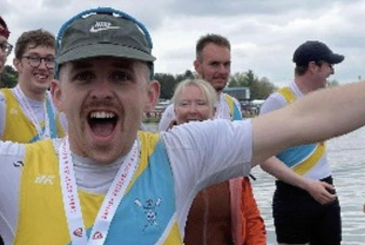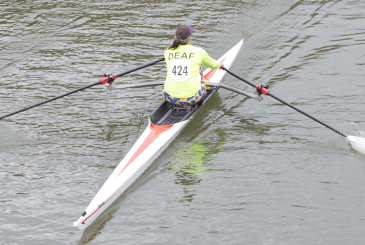How can you avoid overtraining? Olympic silver medallist Vicky Thornley offers tips based on her personal experience
In the 2018 season, Vicky Thornley suffered from overtraining syndrome (OTS), which prevented her from racing at the World Rowing Championships. The Olympic silver medallist shares her thoughts on how you can maximise your training, while avoiding overtraining.
Read on for Vicky’s five areas to focus on:
1 – Training zones
Use your heart rate and work out your training zones. The best way to build that big endurance base for rowing is to make sure you are training the right energy system, at the right time. In particular, ensure that you aren’t working too hard in your long, low intensity sessions. Do the easy stuff easy and the hard stuff hard!
A useful way to monitor fatigue levels is morning monitoring
2 – Use training camps to push things on
Training camps are predominantly about being able to train harder as we have more recovery time. You take away the home stresses and it is literally: train, eat, sleep repeat. If you enjoy training camps with your club, use them to push the volume and intensity of your training. While at home, if you have a busy schedule with work and other pressures, be easier on yourself.
3 – Energy intake
The winter months are when training volume and energy demands are highest. Therefore, ensure you are adapting your energy intake, so that you are giving your body the nutrition and fuel it needs. I usually weigh a couple of kilos more in winter than summer. Carrying a bit more weight also helps support your immune system and keeps infections at bay.
What is overtraining?
The European College of Sport Science and the American College of Sports Medicine define it as “an accumulation of training and/or non-training stress resulting in long-term decrement in performance capacity, with or without related physiological and psychological signs and symptoms of maladaptation, in which restoration of performance capacity may take several weeks or months”.
4 – Morning monitoring
Fatigue is normal and something we should embrace, if we are training optimally. However, it can be difficult at times to differentiate between good fatigue and when you are pushing too hard.
A useful way to monitor fatigue levels and general well-being is morning monitoring.
Here’s a guide of what to record daily:
- Body weight.
- Resting heart rate.
- Sleep quality: 1-10 (1 being a couple of hours and 10 being an undisturbed 8-10 hours).
- How do you feel? 1-10 (1 being exhausted and 10 being full of energy).
5 – Train smart
My final comment would be: listen to your body. Our bodies are amazing and will tell us when they are struggling. Let’s train hard, but also smart!
This article was originally published in Rowing & Regatta magazine in February 2019.
Photo credit: Nick Middleton.










